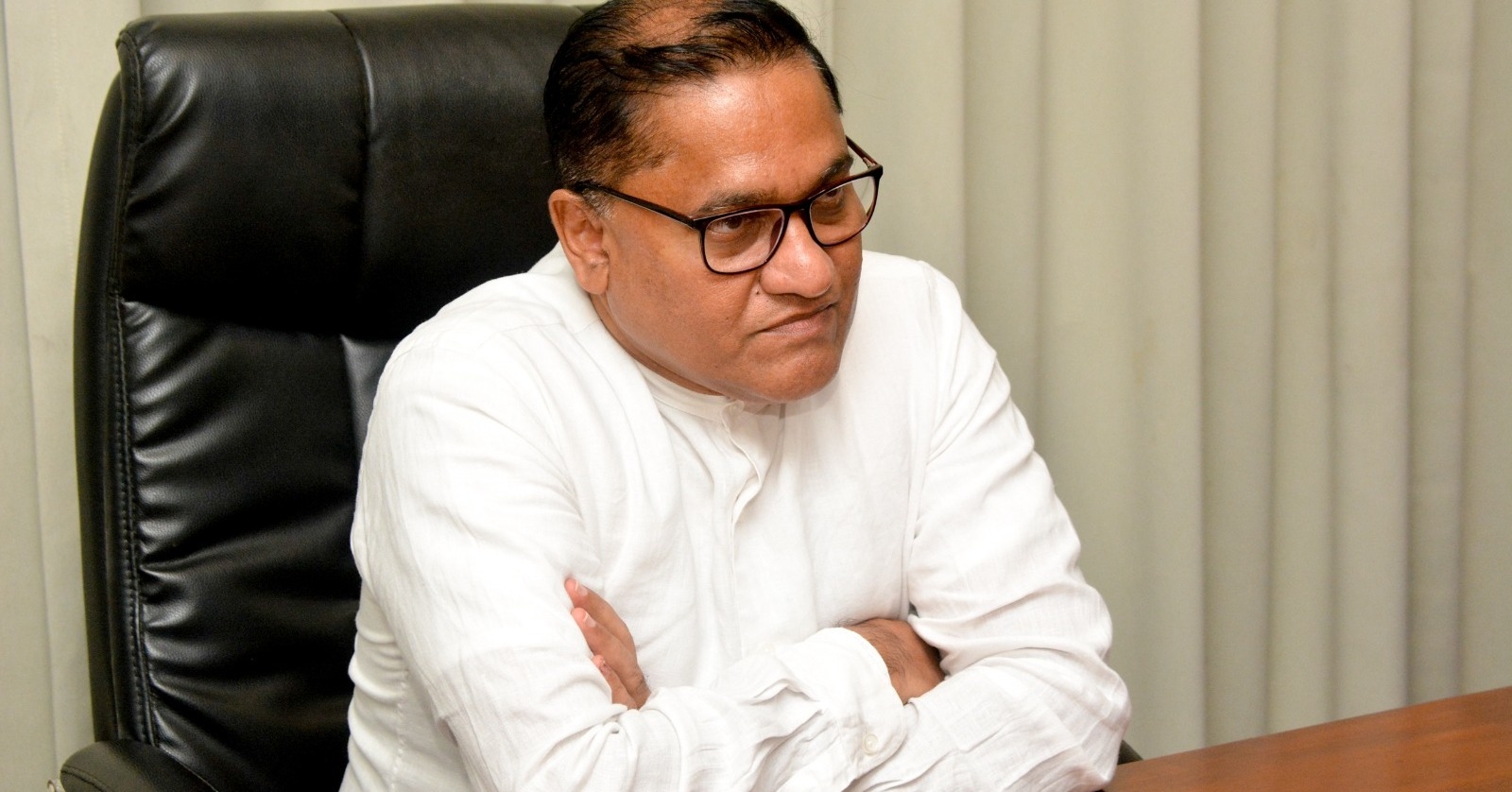
Vijitha Herath, a staunch Sinhala nationalist and Janatha Vimukthi Peramuna (JVP) stalwart has been appointed Sri Lanka’s country’s Foreign Minister, as well as the Minister of Religious Affairs, Mass Media, Environment, Water Supply, Plantation, Community, Housing, and Transport, among others.
We look back at his record.

Vijitha Herath, a staunch Sinhala nationalist and Janatha Vimukthi Peramuna (JVP) stalwart has been appointed Sri Lanka’s country’s Foreign Minister, as well as the Minister of Religious Affairs, Mass Media, Environment, Water Supply, Plantation, Community, Housing, and Transport, among others.
We look back at his record.
What has earned Vijitha Herath the moniker of President Anura Kumara Dissanayake’s right-hand man is his unwavering loyalty to the JVP. Herath is a long-time member, first joining the JVP in 1986 as a student, just months before the party launched a violent revolution against the Sri Lankan state.
Herath has consistently contested from the Gampaha constituency, starting with the provincial elections in 1999, where he garnered only 605 votes. He was elected in 2000 with over 8,000 votes and held his seat since then.
Parliamentary records show that Herath has often been involved in committees on public finance, fisheries, home affairs, and agriculture. Although he has supported several bills in parliament, records do not indicate a single private member’s bill introduced by Herath.
Herath previously held the post of Minister of Cultural Affairs and National Heritage as the JVP joined forces with the Sri Lanka FreedomParty (SLFP) in 2004.
Despite his relatively low profile in parliament, Herath is among Dissanayake’s closest confidants.
Pro-war, anti-justice
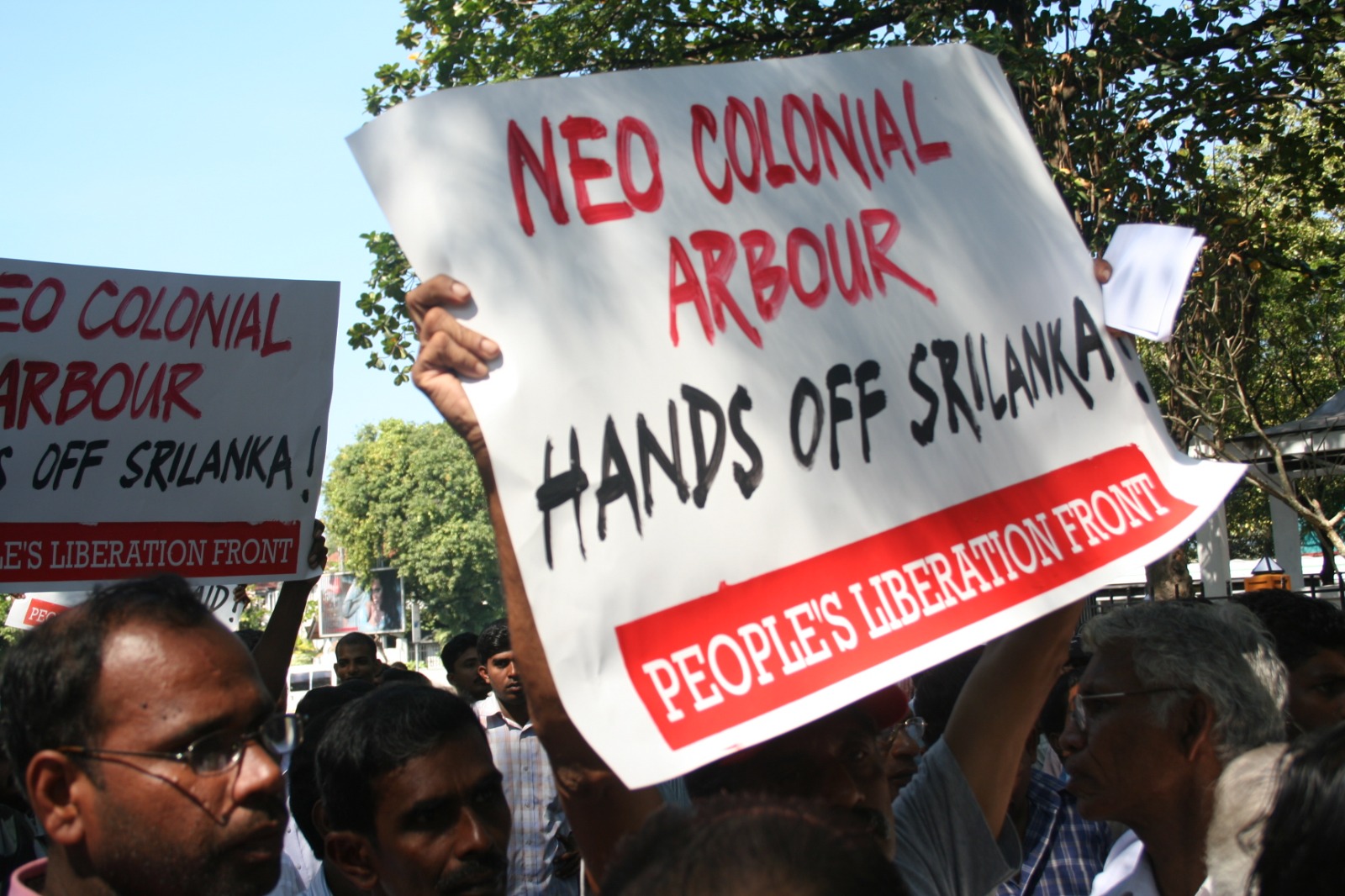
A 2008 protest outside the UN office in Colombo, organised by the JVP and attended by Herath.
Throughout the armed conflict, the JVP used the pretence of Marxism to justify its hardline opposition to Tamil demands. As with the rest of the JVP, Herath was staunchly against peace talks or negotiations. In the 2004 parliamentary elections, the JVP became a coalition partner of the United People's Freedom Alliance (UPFA) and opposed continued peace negotiations with the LTTE. They further rejected the possibility of joint post-tsunami aid distribution and, in 2005, endorsed Mahinda Rajapaksa on a platform specifically opposing the peace process. In early 2006, the JVP openly advocated for a military solution, culminating in the Mullivaikkal genocide.
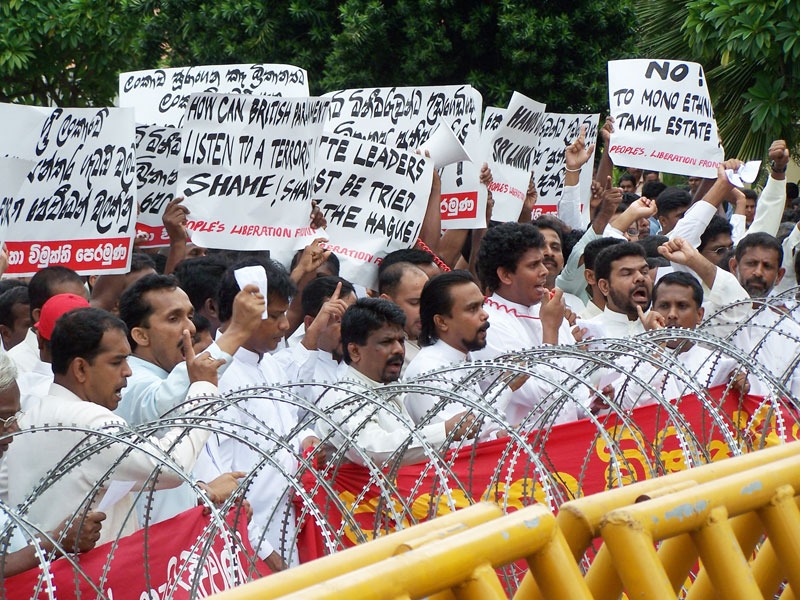
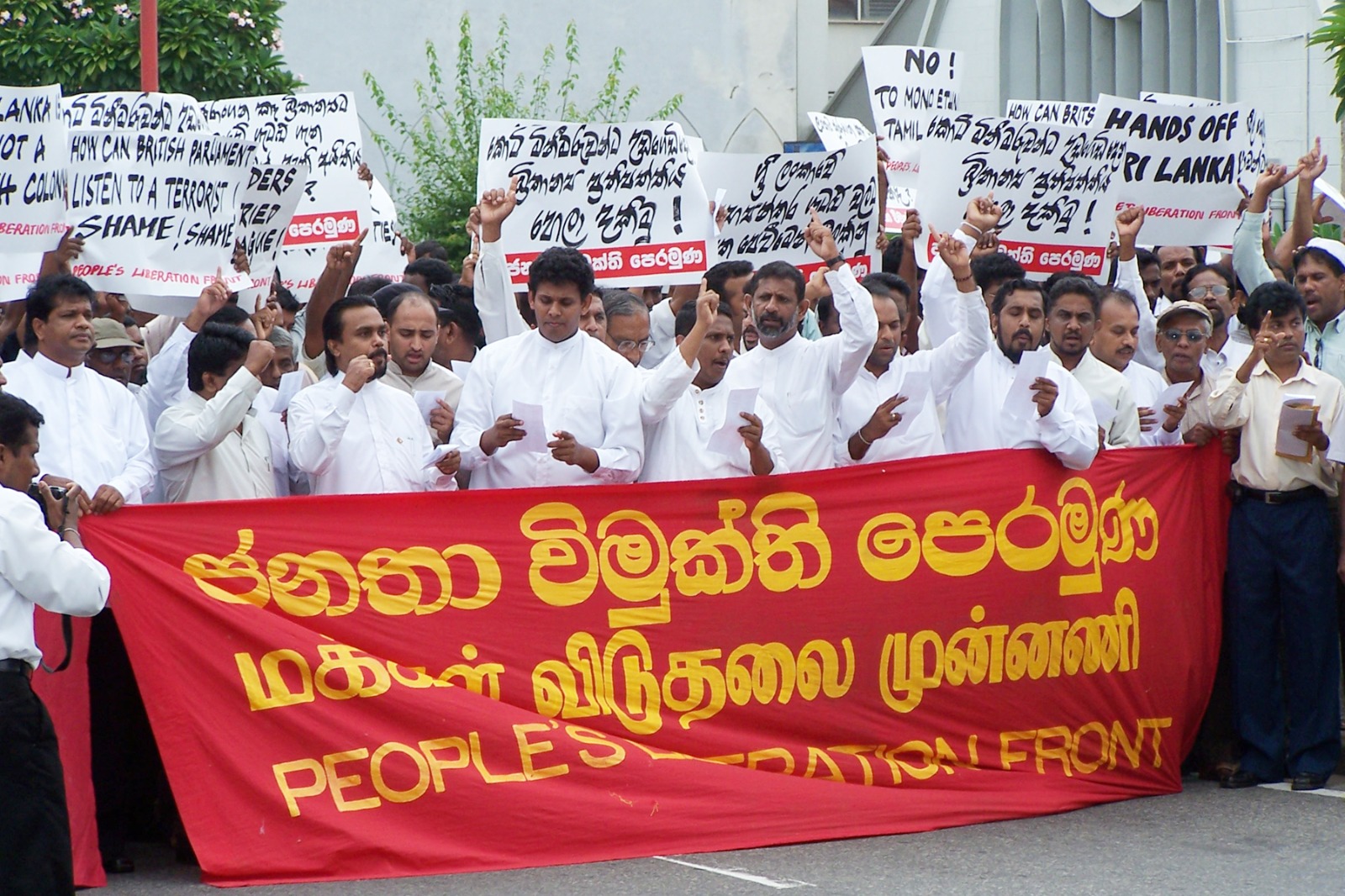
A 2007 protest outside the British High Commission in Colombo, organised by the JVP and also attended by Herath.
As human rights organisations and some Western governments raised concerns about human rights abuses being committed by Sri Lankan troops, the JVP and Herath protested outside the British High Commission and against then-UN High Commissioner for Human Rights Louise Arbour.
As calls for an international independent investigation into the atrocities grew after the 2009 massacres, Herath stood opposed.
“If there is a probe, it should be a domestic process. It cannot be at the behest of a few influential countries out to berate the island,” said Herath in 2015. https://www.tamilguardian.com/content/sri-lankan-ministers-reject-un-investigation-mass-atrocities
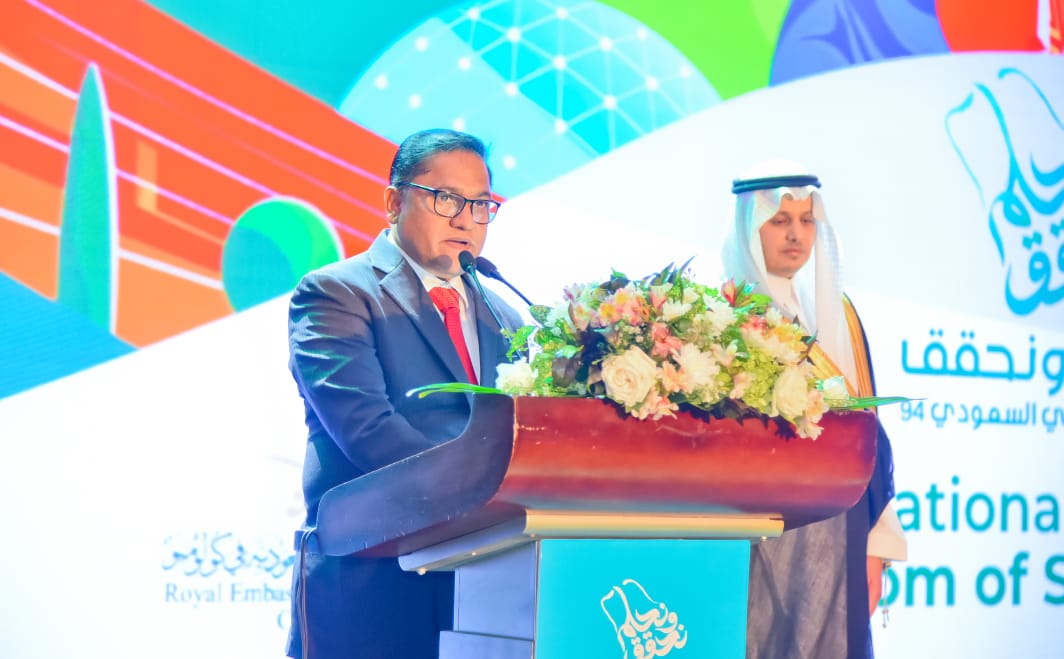
Shortly after taking up his post last week, he thanked Saudi Arabia for their support at the UN Human Rights Council (UNHRC), thanking them for helping fight off resolutions that called for accountability and prosecutions of war criminals.
Early involvement with the JVP
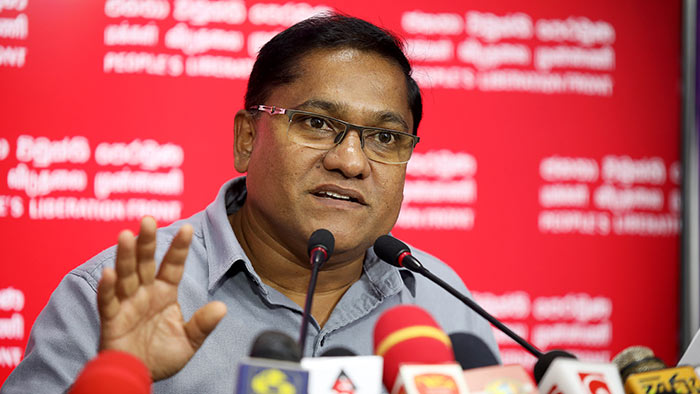
For years, Herath has been staunchly opposed to devolving power to the Tamil North-East and against the 13th Amendment to Sri Lanka’s constitution which grants a limited degree of power sharing, an amendment that was brought about by the 1987 Indo-Lanka Accord.
From its inception, the JVP was infused with Sinhala populism and garnered support mainly from the rural South. Its founder, Rohana Wijeweera, framed Tamil demands for self-determination as being aligned with US imperialist interests, thus laying the groundwork for the party's long-standing racism towards Eelam Tamils.
Though the JVP staged two violent insurrections against the Sri Lankan state that resulted in tens of thousands of deaths, it showed no solidarity with Eelam Tamils and remained staunchly opposed to Tamil demands for autonomy. The party cultivated some of the island’s most fervent Sinhala racists.
Recalling his early involvement with the JVP and the 1987 insurgency, Herath said,
“At the time there was a civil war in our country. We fought against the Indian army. Actually at the time the Indo-Lanka peace accord was signed by the Sri Lankan president and Rajiv Gandhi, the Indian prime minister.
It was badly affected to Sri Lankan society. After singing that agreement our Trincomalee oil tanks, had to give ownership of that oil tank to the Indian government and the IOC company. Likewise, the Indian government interfered in our internal matters. Because of that interference, we had to fight against that invasion.
I [was] also a member of the JVP and we did many demonstrations -democratic demonstrations – against that invasion.”
Firm against devolution
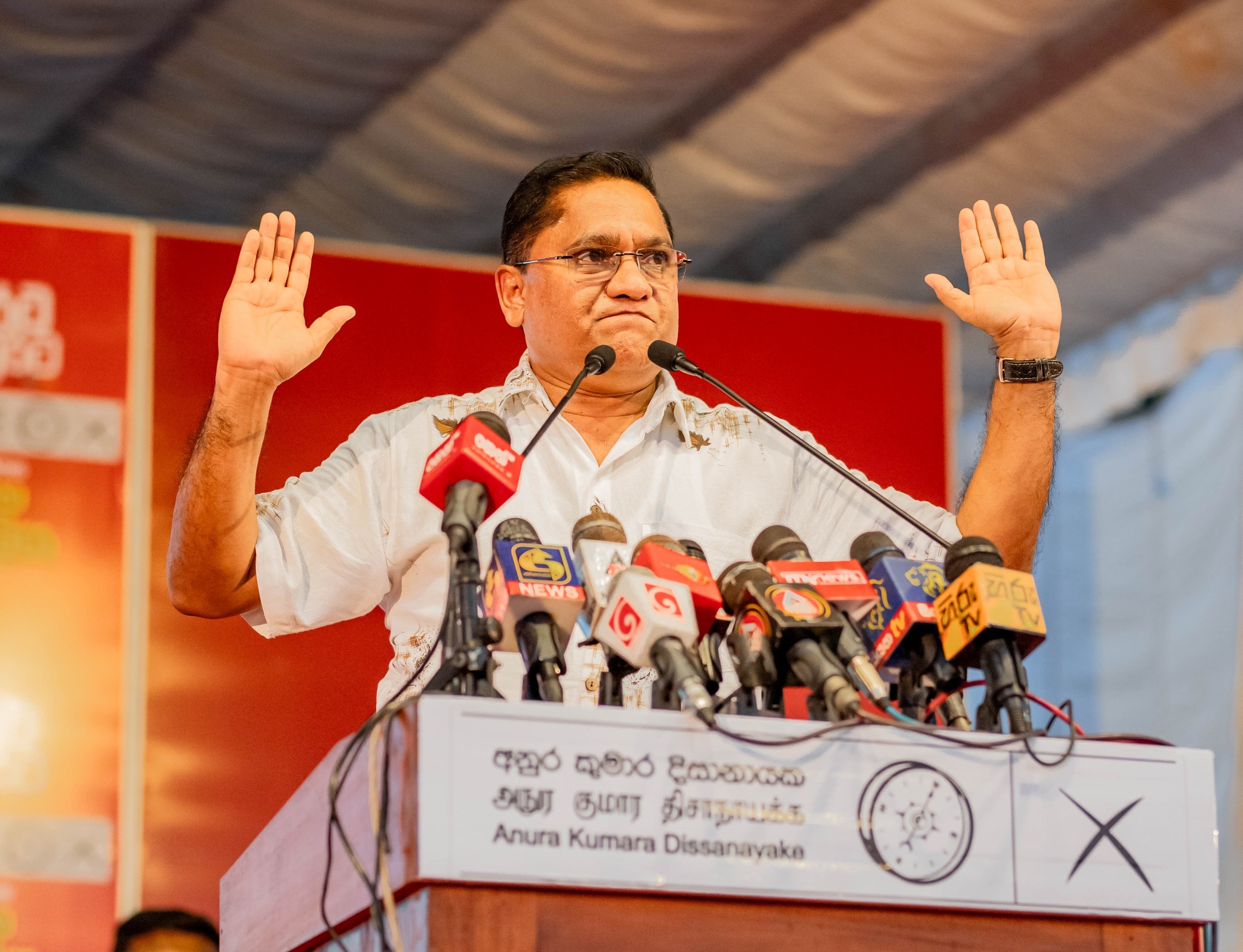
In that 2021 interview, he went on to state, “We are against separatism in our country. Because separatism is not a solution the ethnic issue in our country.”
He went on to add that the JVP wrote a book in which the party states “separatism is not the solution to our ethnic issues and federalism is not a solution too our ethnic issue”.
“Our solution is to give equal rights to all people without considering their race or religion or any other differences on a equal basis.
We fought against the LTTE because the LTTE tried to divide our people… We did many things against that and finally we could have achieved that target. We defeated the LTTE ideologically and in all other ways.”
Devolution of powers, even through the extremely limited 13th Amendment has been strongly opposed by Herath for years.
In 2005, he spoke out against the merging of the North and East into one province.
In 2015, Herath told The Island, "the JVP is against federalism”. Whilst accepting that “the grievances of the Tamil people should be redressed,” Herath reiterated that “federalism is not that solution”.
He also spoke out against the merging of the Northern and Eastern provinces, as outlined by the Indo-Lanka accord.
“It is the JVP that went before the courts and got an order to demerge the two provinces that had been arbitrarily merged after the Indo-Lanka Accord,” said Herath. “These two provinces should function separately.” The merging of the provinces was effected in 1987 as part of the Indo- Lanka Accord, until Sri Lanka’s Supreme Court declared it "null and void and illegal” in 2006.
The JVP and the hardline Buddhist JHU party campaigned against the merger, bringing it to the court and celebrated its ruling, with jubilant party members lighting firecrackers the building at the time.
“Ambition of the separatists has been to get the North and the East merged in order to show the international community that a majority in those areas are Tamils, hence they could demand a separate administration,” he told a press conference in 2019.
“Such a proposal has been submitted by Tamil political parties in every election. We are against this move.”
In February, after accompanying President Dissanayake on a visit to Delhi, Herath reiterated that his party will continue to engage in politics while ensuring the country’s sovereignty and territorial integrity remain intact. Referring to the 1987 JVP uprising, Herath said, “We strongly opposed the Indo-Lanka Accord decades ago, and dedicated our efforts to safeguarding Sri Lanka’s sovereignty, even at the cost of many lives.”
"This stance has not changed and will not change," he told reporters in Colombo.
And just before polls closed this month, Herath said "provincial councils are not a solution to the ethnic issues in the country." He emphasized his party has made “great sacrifices” to uphold the country's unitary state, territorial integrity, and national security. "Yesterday, today, and tomorrow, our stance remains the same. Protecting the unitary state is our bound duty," Herath declared.
Speaking at a public symposium convened by the All Ceylon Buddhist Congress, Herath reiterated that the party remains steadfast in its stance on religious priorities.
"We made it clear then, and we remind you now, that provincial councils are not a solution to the ethnic issues in the country," he stated. "Article 9 of our constitution will not be changed in any manner."
Article 9 of Sri Lanka’s constitution asserts that “The Republic of Sri Lanka shall give Buddhism the foremost place, and it shall be the duty of the State to protect and foster the Buddha Sasana, while assuring to all religions the rights granted by Articles 10 and 14(1)(e)." Herath affirmed that the JVP would maintain the same prominence for Buddhism as previous governments.
